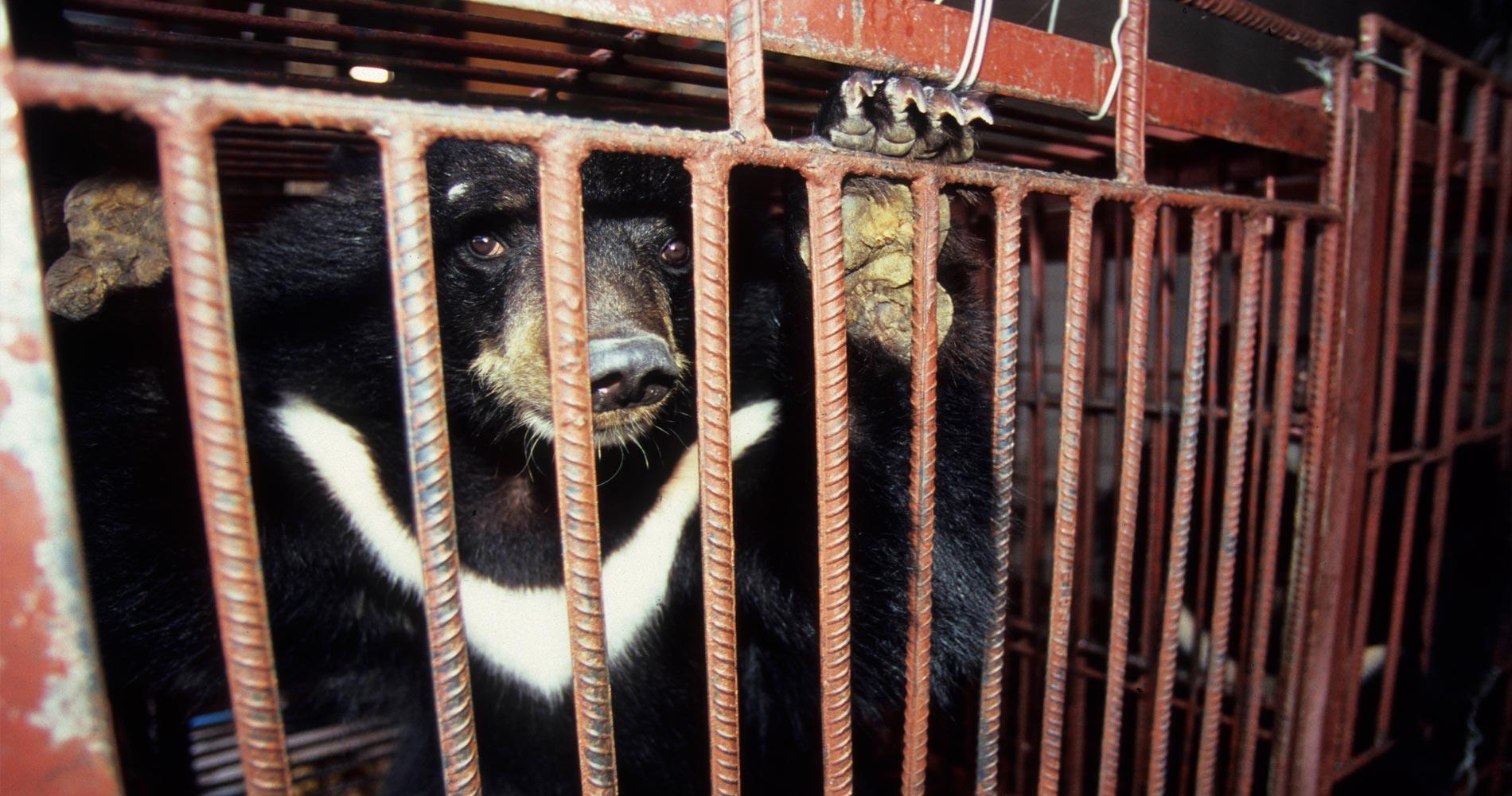The Malayan sun bear is on the brink of extinction. They are hunted, captured, harvested and killed for their bile. Traditional Chinese Medicine (TCM) regards sun bear bile as a cure to many human illnesses. Not enough is being done to stop the illicit exploitation and torture of the sun bears whose world-wide population continues to decline.
Daniella Vanova, 6 March 2023
Chinese version | German version | Russian version | Spanish version
Sun bears are indispensable in preserving tropical rainforests. They are the smallest bear in the world. An adult male sun bear stands about 4 feet (1.2 meters) tall. Predominantly found in China, Burma, Malaysia, Myanmar, Thailand, Sumatra, Laos Cambodia, Vietnam, and Borneo, they are hunted for their bile. The COVID-19 pandemic increased the incentive to poach sun bears due to the suggestion of the Chinese National Health Commission to treat the virus with an injection of “traditional medicine” containing bear bile.
First described in the year 659 AD during China’s Tang Dynasty, sun bear bile was harvested in the belief that it would treat hemorrhoids, sore throats, sprains, epilepsy, fever, inflammation, and clear toxins from the liver. Many studies have shown that synthetic bile contains the same ingredient as real bile, ursodeoxycholic acid (UDCA). This substitute could be used in treating these health issues. Yet the myth that only natural bile is effective is perpetuated throughout China and Asia.
The sun bear is listed in Appendix 1 of CITES (Convention of International Trade in Endangered Wild Fauna and Flora) to prevent their exploitation. Appendix I lists species that are the most endangered among CITES-listed animals and plants. These species are considered threatened with extinction. CITES basically prohibits international trade in these species. Despite this listing, the exploitation and decimation of the sun bear has continued.
Illegal trade in sun bears is a lucrative business. Commercial bile farms of captive sun bears began in the late 1970s in the hope of protecting wild bears from being hunted. This measure had been sanctioned by the Chinese government. This policy had quite the opposite effect. Demand for their bile increased, as did their suffering and capture in the wild. Tens of thousands of bears continue to be commercially farmed for their bile in China and their living conditions and treatment were, and still are, vile. Kept in tiny cages, their teeth and claws are broken and removed to prevent them from attacking their handlers. They are in constant pain due to the bile extraction catheter.
By 2020 commercial farming has been banned in 20 Chinese provinces. Yet nearly 100 farms housing between seven to 10 thousand bears are proof that this ban is not enforced by Chinese authorities. In Laos and Indonesia unscrupulous business interests trump conservation laws. In Laos, the number of farms has tripled within a five-year period from 40 in 2008 to 120 in 2013.
The sun bear population has declined by 30 percent over the past three decades, causing the International Union for Conservation of Nature (IUCN) to declare that the sun bear is on the brink of extinction. In 2019 the inter-governmental IUCN passed the Sun Bear Convention Action Plan 2019-2028 which includes practical initiatives aimed at government agencies in range states and provinces where farming has not been outlawed.
Initiatives to rescue the sun bear have increased. The goal is to eliminate commercial bear farms where bile is extracted, enforce national laws banning these farms and international agreements protecting the sun bear. It is also necessary to raise public awareness. In Malaysia, efforts pertaining to the sun bears’ survival have gained traction. The Bornean Sun Bear Conservation Centre’s (BSBCC) role is leading the way. They rescue and rehabilitate orphaned sun bears and run educational programs within schools. International NGOs such the Worldwide Fund for Nature (WWF) work closely with local communities and NGOs to protect the sun bear’s habitat and stop the illegal trade.
More needs to be done to stop the poaching and illegal trade of these endangered bears. Building awareness about the inhumane treatment of sun bears and their importance to local ecosystems is critical to ensure the survival of the smallest bear in the world. The sun bear has no chance to survive the ever-growing demand for its bile in TCM unless it is given the legal protection it deserves.







